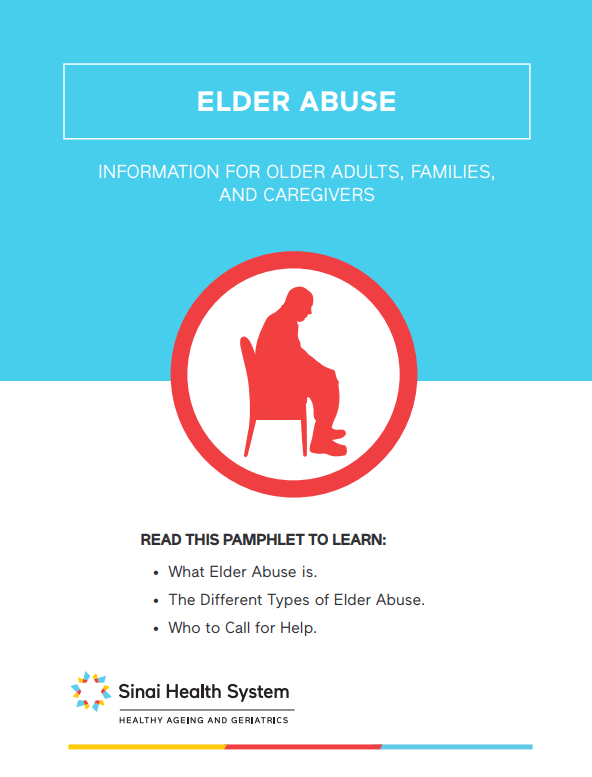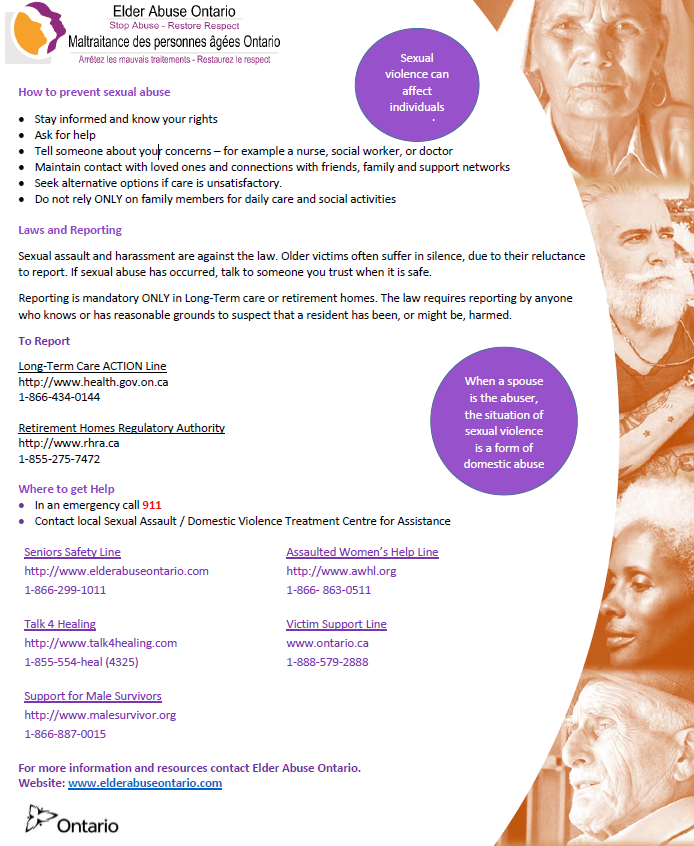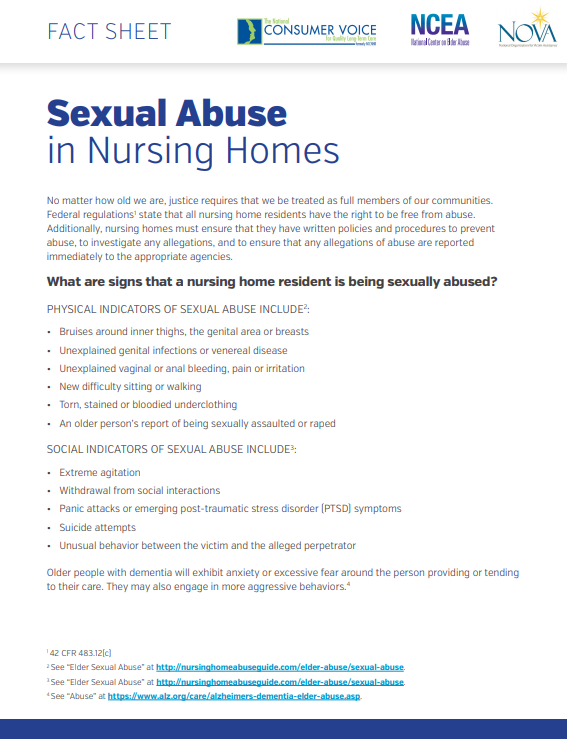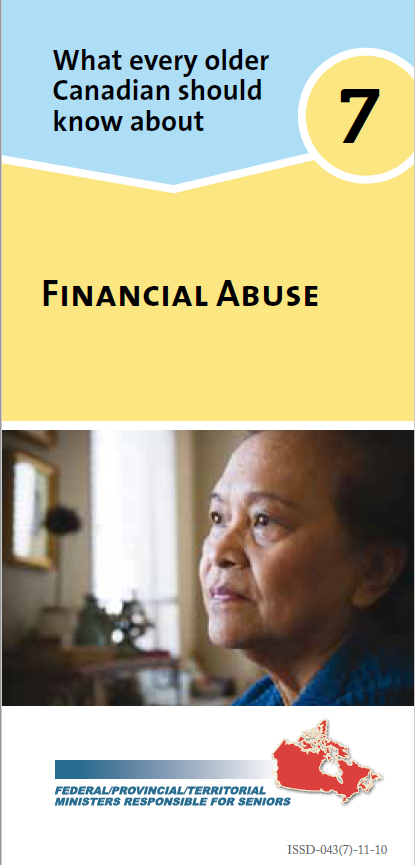Brochures and Factsheets
The following is part of our project “Increasing Access to Justice for Older Adult Victims of Sexual Assault: A Capacity Building Approach”, funded by the Justice Canada Victims Fund.Learn more about this project or consult the full list of resources
'WHAT IS SEXUAL ABUSE OF OLDER ADULTS?
Sexual Abuse is “non-consensual sexual contact of any kind with an older adult. Sexual contact with any person incapable of giving consent is also considered sexual abuse.” (Public Health Agency of Canada (PHAC), 2012
This Fact Sheet covers the essential points such as signs, related laws, where to report, where to get help etc
Source: Elder Abuse Ontario
"Last year, the City of Vancouver Seniors’ Advisory Committee initiated a special project to investigate the causes and consequences of social isolation and loneliness among seniors in Vancouver, and what the City of Vancouver and other stakeholders can do to help reduce or prevent these problems."
This brochure accompanies the report, and is intended for service providers. It summarizes risk factors, health and social effects, what you can do as a service provider and where you can find some helpful resources.
Source: Vancouver Seniors Advisory Committee
The following is part of our project “Increasing Access to Justice for Older Adult Victims of Sexual Assault: A Capacity Building Approach”, funded by the Justice Canada Victims Fund.Learn more about this project or consult the full list of resources
What are the physical and social indicators of sexual abuse?
The NCEA has created a simple fact sheet to help professionals and the public identify and prevent sexual abuse of older adults in nursing homes.
Source: National Centre on Elder Abuse

- What Elder Abuse is.
- The Different Types of Elder Abuse.
- Who to Call for Help in Ontario
Source: Sinai Health System
This document has been jointly prepared by the Federal/Provincial/Territorial Ministers Responsible for Seniors Forum.
The Forum is an intergovernmental body established to share information, discuss new and emerging issues related to seniors, and work collaboratively on key projects.
Source: Employment and Social Development Canada
Page 9 of 13



















